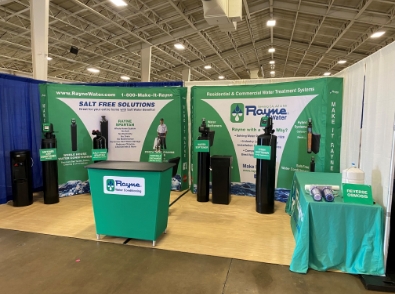
Answer a few questions and find the perfect product for your needs.
Start questionnaire
Answer a few questions and find the perfect product for your needs.
Start questionnaire
Answer a few questions and find the perfect product for your needs.
Start questionnaireAuthor: Ken Christopher | 3 min read | Oct 26, 2025
Water softeners are designed to improve water quality by removing hard minerals like calcium and magnesium. However, many residents in Bullhead City have reported experiencing a salty taste in their water after the softening process. Understanding why this occurs can help homeowners make informed decisions about their water treatment systems.
The primary reason your water may taste salty post-softener is the ion exchange process that occurs within the system.
Replacement of Minerals: Water softeners substitute hard minerals with sodium ions. While this process effectively softens water, it can increase sodium levels, leading to a salty taste.
Reverse Osmosis Systems: If you also use a reverse osmosis system, it may accentuate the salty flavor due to residual sodium buildup in the system.
Understanding the reasons behind the salty taste can shed light on the numerous benefits water softeners provide:
Here are some effective strategies to mitigate salty water taste:
Optimize Softener Settings: Regularly check the settings and ensure your softener is calibrated according to water hardness levels.
Consider a Reverse Osmosis System: For cleaner, better-tasting drinking water, consider integrating a reverse osmosis drinking water system into your home.
Flush the System: Regularly flushing your water softener can eliminate excess sodium and ensure fresh water taste.
A strange taste can stem from an excess of sodium or residual minerals. Ensure your water softener is functioning correctly and check for any maintenance needs.
Softened water can be safe to drink for most people; however, if you are on a sodium-restricted diet, consult a healthcare professional about consumption.
Integrating a bottleless water cooler solution for offices or using a filtration system can greatly enhance the taste and quality of your drinking water.
Experiencing a salty taste in your water after using a softener in Bullhead City is primarily due to the ion exchange process substituting hard minerals with sodium. By optimizing your softener settings and considering additional filtration methods, you can improve the taste of your water while still enjoying the benefits of softening. For further assistance, explore our whole house water softener systems at Rayne Water, where we are committed to your water quality needs.
Ken Christopher is the Senior Vice President for Rayne Dealership Corporation. As a seasoned executive with over 20 years of leadership experience, he’s helped scale…
Subscribe our newsletter to receive the latest news and exclusive offers every week. No spam.